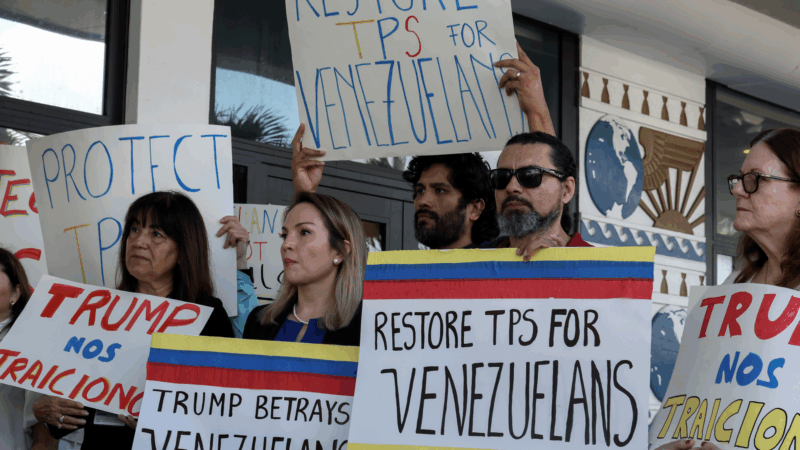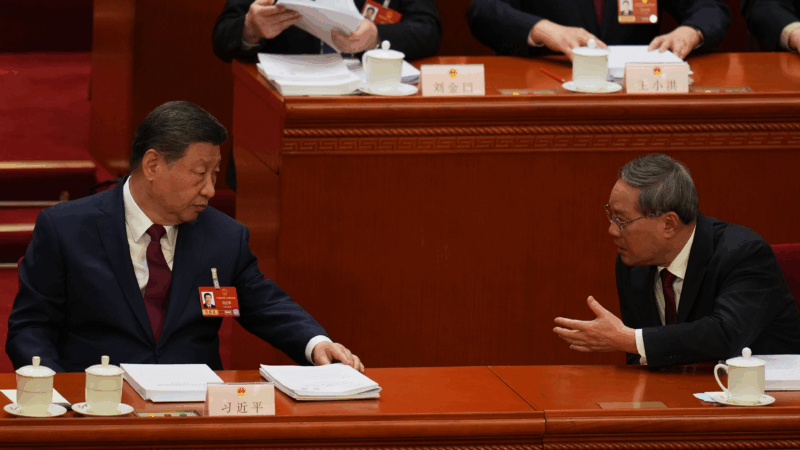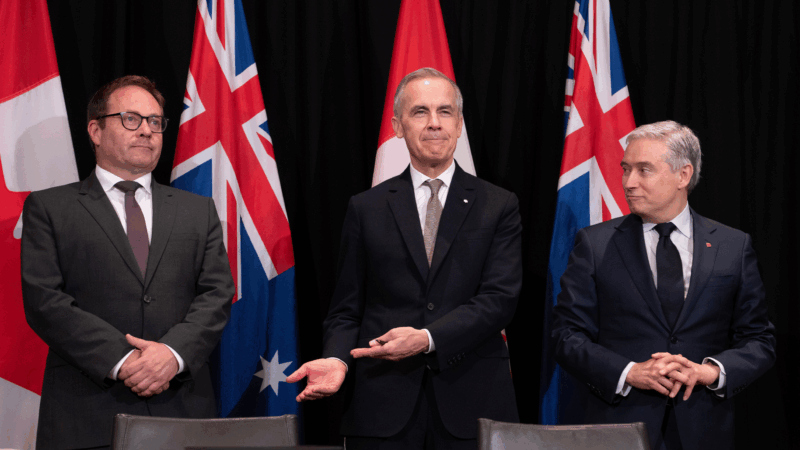Trump administration can strip protected status for Venezuelans for now
The Supreme Court on Monday allowed, for now, the Trump administration to remove legal protections for roughly 350,000 Venezuelans now living in the U.S., under a program that had protected them from deportation known as Temporary Protected Status.
The court’s decision allows the Trump administration to end TPS for this group pending appeal of the case, paving the way for possible deportations soon. A federal judge paused the administration’s plans on TPS a week before it was scheduled to end, resulting in the Trump administration filing an emergency application to the U.S. Supreme Court.
The court’s unsigned brief did not elaborate on its reasons, which is common in emergency orders before the high court. The court did say that Justice Ketanji Brown Jackson would have denied the application.
Under the law, the Secretary of Homeland Security has the power to grant TPS to immigrants of a specific country if conditions there “temporarily prevent the country’s nationals from returning safely, or in certain circumstances, where the country is unable to handle the return of its nationals adequately.”
The conditions include ongoing armed conflict and environmental disasters. People who have TPS cannot be removed from the U.S., and are allowed to get a work permit.
Homeland Security Secretary Kristi Noem had moved to end an 18-month TPS extension granted by the Biden administration. Venezuelans affected by the move filed suit, alleging procedural violations and racial bias.
Venezuelans in the U.S. with TPS are divided into two buckets: those who got it in 2021 when the Biden administration initially designated Venezuela for TPS, and those who got it when the program was extended in 2023.
The Supreme Court decision applies to the 2023 group of immigrants. Those who got the protected status in 2021 are expected to lose it later this year when the Trump administration said it plans to let the current program expire.
About eight million people have left Venezuela since 2014 due to political persecution, violence, and a lack of food and access to essential services. In 2023, Nicolás Maduro won his reelection in a race contested as fraudulent by the opposition. After protests broke throughout the country, Maduro’s forces arrested more than 2,000 people, including more than 100 minors.
Secretary Noem has said “permitting Venezuelan nationals to remain temporarily in the United States is contrary to the U.S. national interest.” In February, Noem said conditions in Venezuela have improved including “the economy, public health, and crime that allow for these nationals to be safely returned to their home country.”
At the same time, the U.S. State Department continues to advise Americans to not travel to Venezuela, the highest travel advisory level. “Do not travel to or remain in Venezuela due to the high risk of wrongful detention, torture in detention, terrorism, kidnapping, arbitrary enforcement of local laws, crime, civil unrest, and poor health infrastructure,” according to the advisory, reissued May 12.
China sets a lower economic growth target of 4.5% to 5% for 2026 as challenges loom
China has signaled continuity rather than change for its economy, setting a slightly lower target for growth this year in the midst of a property slump and other headwinds at home and growing uncertainty abroad.
Carney says he backs strikes on Iran ‘with some regret’ as world order frays
Canadian Prime Minister Mark Carney says he supports the strikes on Iran "with some regret" as they represent an extreme example of a rupturing world order.
Iranian civilians are now fleeing the relentless bombing for neighboring Turkey
As the U.S. military broadens its strikes in Iran, traumatized Iranians are reaching the border with Turkey.
A split Senate votes against measure to constrain Trump’s authorities in Iran
Democrats in the Senate were facing an uphill climb Wednesday in their push to restrain President Trump's ability to wage war against Iran.
WATCH: How traffic dried up in the Strait of Hormuz since the Iran war began
The effective closure of the Strait of Hormuz is "about as wrong as things could go" for global oil markets. Iran achieved it not with a naval blockade, but with cheap drones.
As Mississippi waits to spend opioid settlement funds, children and families suffer
Mississippi will receive more than $400M to fight the opioid epidemic. So far, officials haven't directed it toward programs that support addiction recovery.






